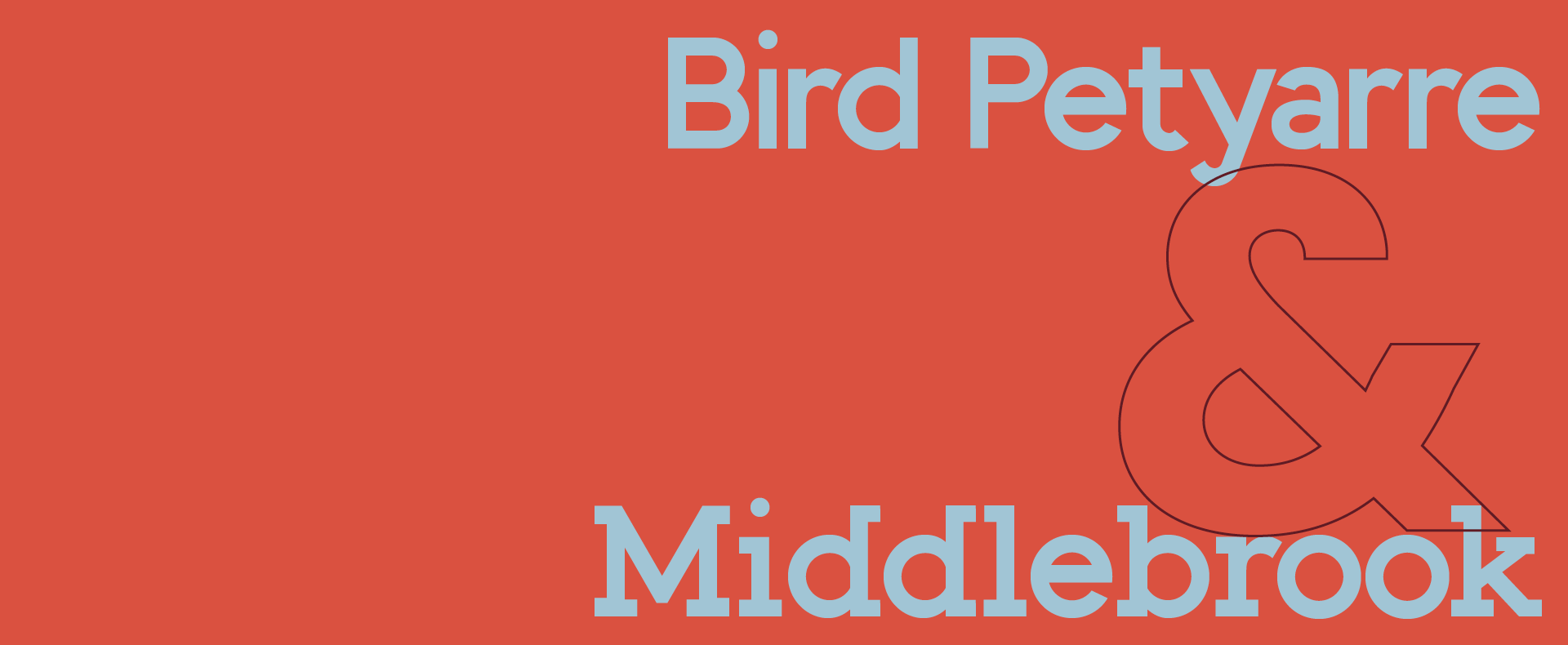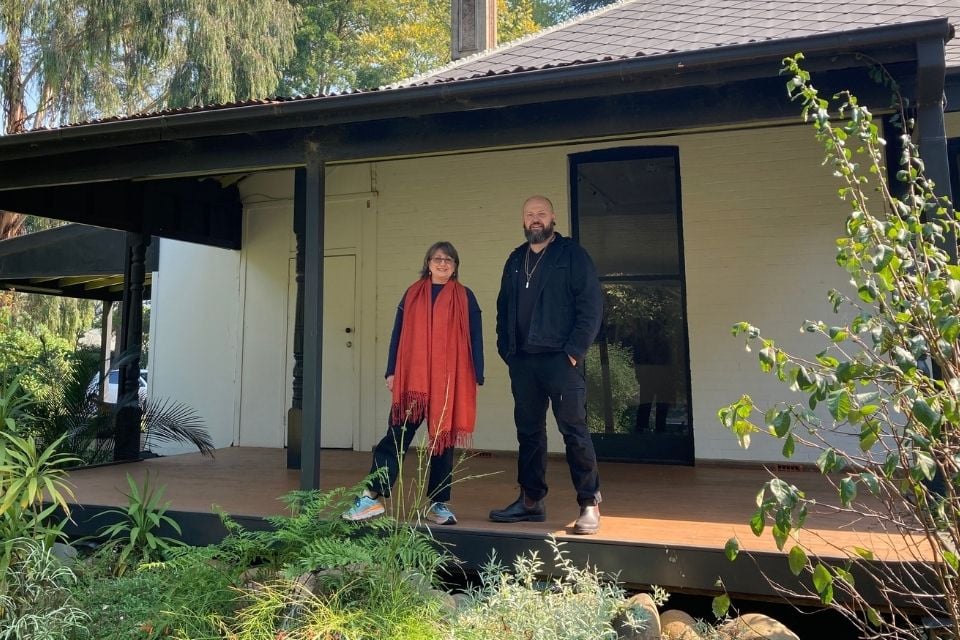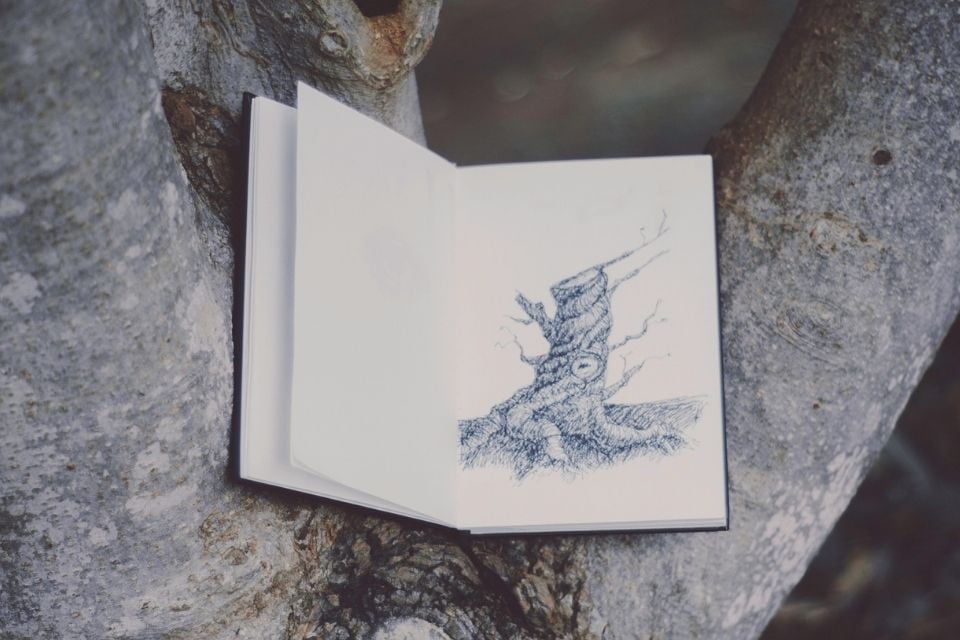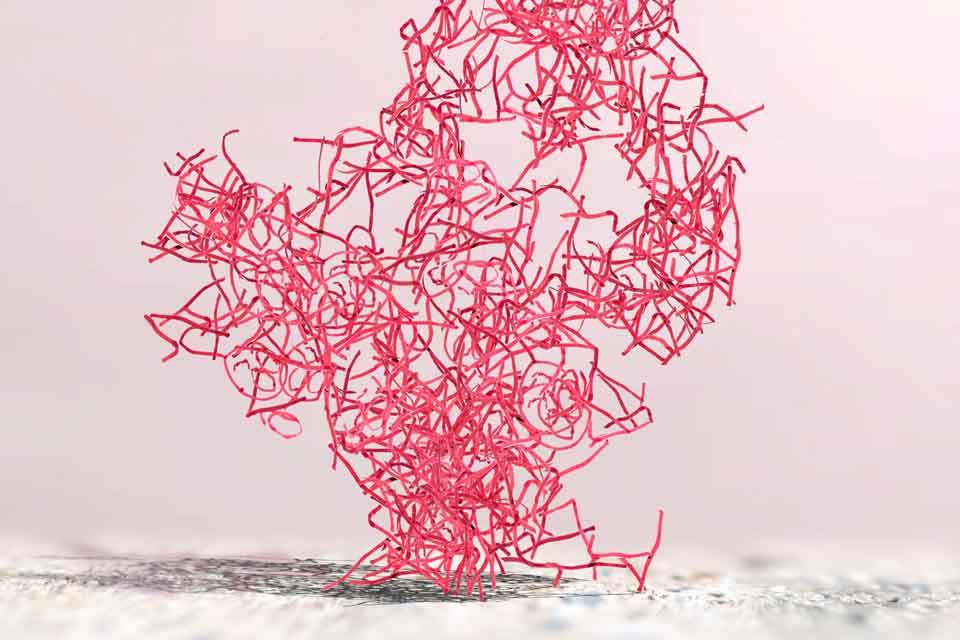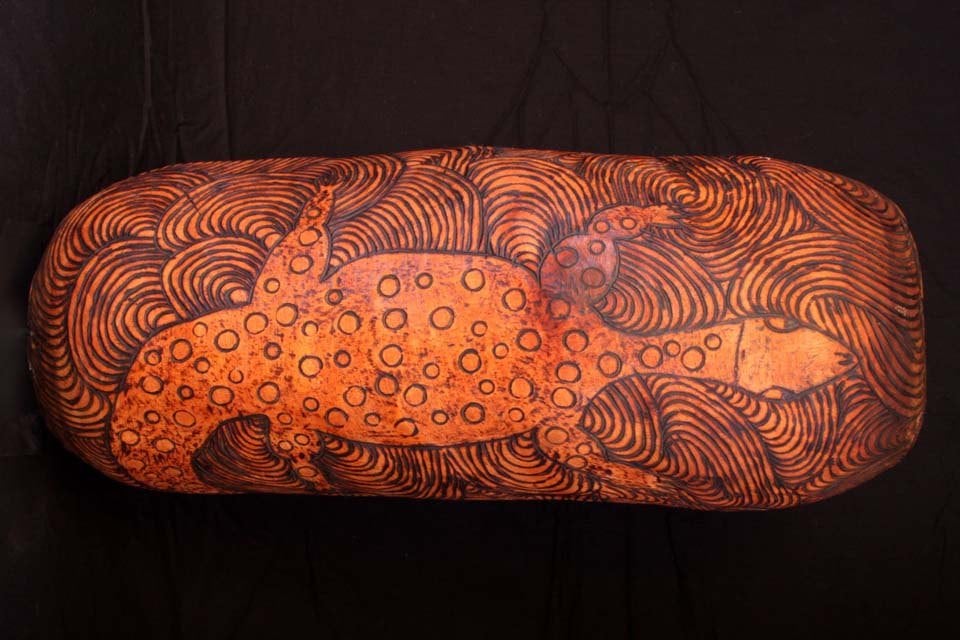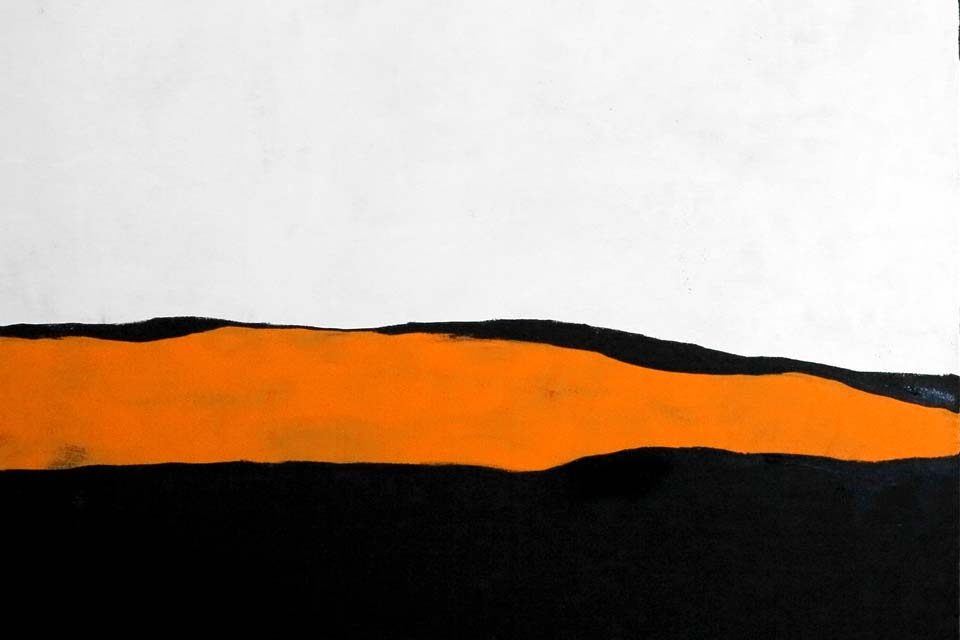Bird Petyarre & Middlebrook
Opening 15 May 2021
“I am earth” Ada Bird Petyarre said, meaning that there was no separation between her, the mountains, deserts, trees and animals. Ada Bird and David Middlebrook were friends for the last three years of her life. They met by chance, and Ada taught David the difference between ‘looking at and being landscape’. They spent time together at Alice Springs and Mulga Bore Utopia.
David has always felt compelled to the horizon and is fascinated by its symbolism as unobtainable; it is impossible to get there. Ada specialised as a body painter (awelye means body painting), and she would paint her sisters for ceremonies. Her paintings feature the curved shapes of breasts, and her Dreaming relates to arnkerrthe, the mountain devil lizard, a significant ancestral figure for Ada and her country, Anungara. In Ada’s cultural practice, Dreamings are passed on to groups and individuals through a complex system of inheritance laws and kinship linking them to a specific tract of land.¹
Whenever Ada and David met, they drank lots of tea and talked about painting, the land, her family, and they always had fun. Ada would look at David’s drawings and if she recognised the landscape, she would sing it. Hearing drawings or paintings converted to song is to bring them to life. One afternoon while watching a storm at Mulga Bore, Ada painted over David’s ink drawings. Her body art echoed the landscape and her connection.
There have been some other significant collaborative friendships between Indigenous and non-Indigenous artists in Australia. Albert Namatjira and Rex Battersby; Clifford Possum Tjapaltjarri, Johnny Warangkula Tjupurrula and Turkey Tolson Tjupurrula and Tim Johnson. And more recently, Michael Nelson Tjakamarra and Imants Tillers. The collaboration and friendship between Ada and David follow this history of cross-cultural dialogue.
Over the years professional linguists have been working towards more accurate spellings that include the different sounds of Aboriginal languages. Words in Australian languages are not pronounced the same way that English is pronounced. One really big change is that now Aboriginal people themselves are having much more say in how they want their languages to be spelled. This will continue over time, and it’s a good thing that nowadays more Aboriginal people give more input into their own languages’ spelling.
¹ Christine Nicholls, Art History Place, published by Working Title Press, 2003.
David Middlebrook is represented by Geoff White, Lost Bear and Simon Chan, Art Atrium.
Ada Bird Petyarre’s estate is represented by Aboriginal Artists Agency.
In the case of this exhibition, showcasing the artworks of the late Ada Bird Petyarre, we’re using the orthography that was in place during Ada’s lifetime.
- Key Info:
- Dates & Times
- Tickets
15 May – 22 August 2021
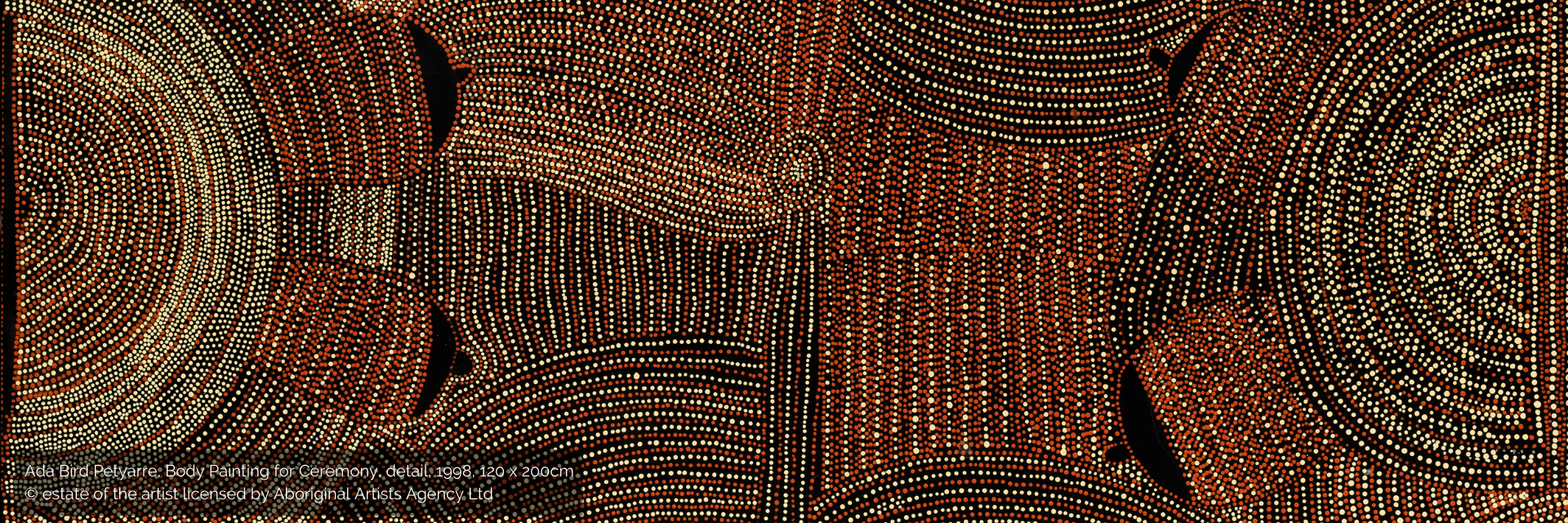
A COVID-19 Safety Message
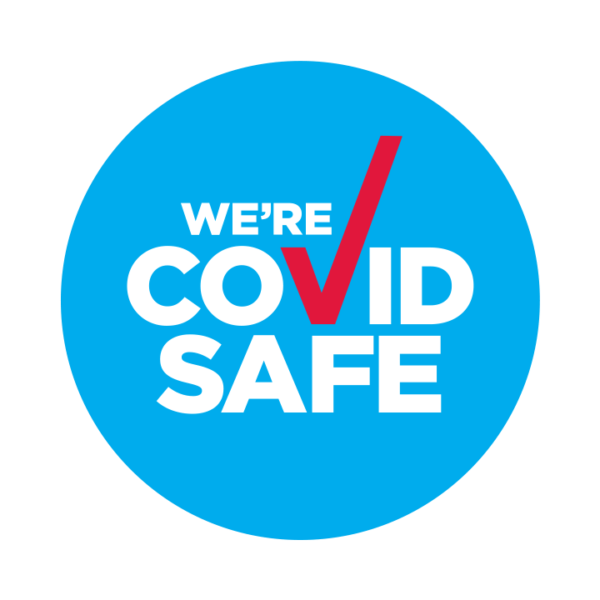 Penrith Regional Gallery, Home of The Lewers Bequest is a registered COVID Safe venue and we are now operating under strict new guidelines. Your health and safety is our priority.
Penrith Regional Gallery, Home of The Lewers Bequest is a registered COVID Safe venue and we are now operating under strict new guidelines. Your health and safety is our priority.
Please click here to view our full COVID Safe plan and our Terms & Conditions that are now in place.
It is the responsibility of every individual to help stop the spread of COVID-19. If you have experienced cold or flu-like symptoms in the last 14 days, have a temperature and/ or been in contact with a confirmed case of COVID-19, it is our right to refuse you entry into our venue. The health and safety of our patrons and staff is extremely important to us. Please contact us before your event if any of the above applies to you.
Penrith Performing & Visual Arts recommends that all patrons download the COVIDSafe app on the Apple App Store or Google Play.
We continue to closely monitor and adhere to the regulations and advice provided by the Australian Government Department of Health and in accordance with NSW Government guidelines. PP&VA’s COVID Safe plans will continue to evolve as the health advice changes.
If you’re having problems finding the information you need, please email us or give us a call on 02 4735 1100.
